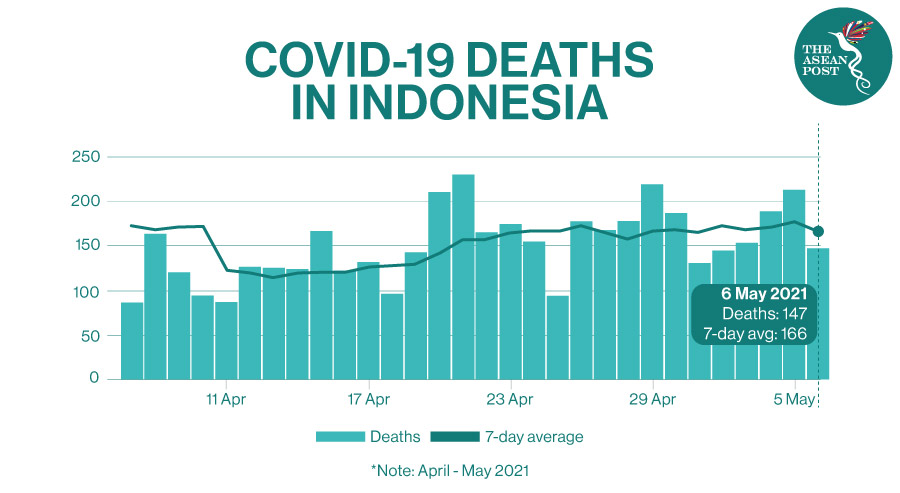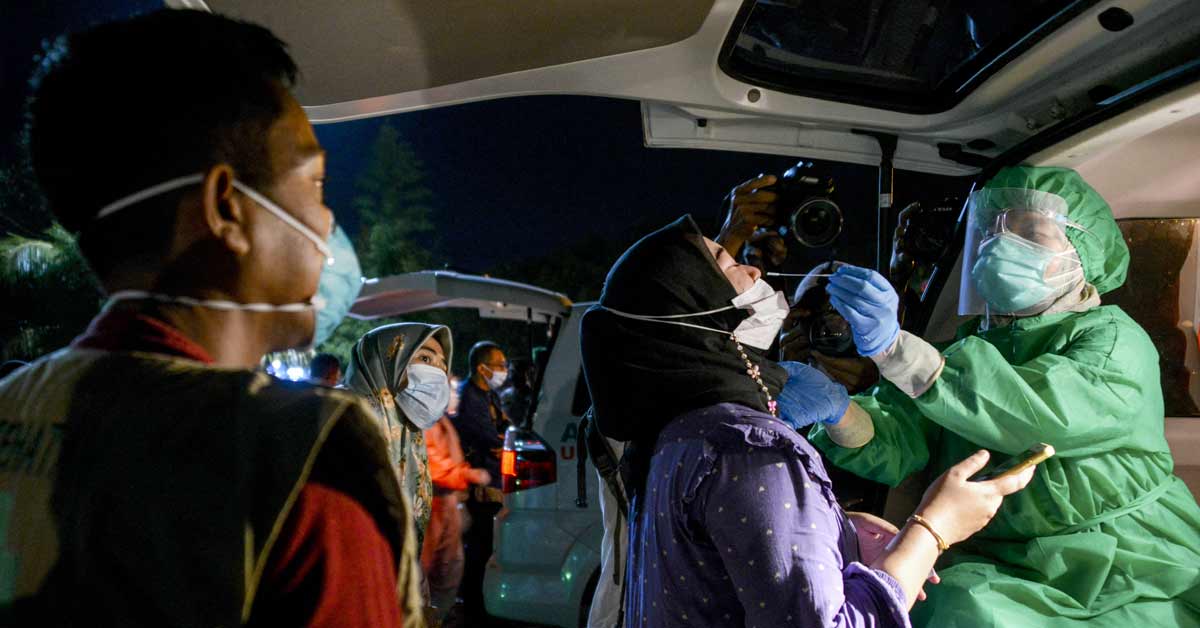For the past few weeks, the world`s attention has been drawn to India as COVID-19 cases soar in an extreme fashion. Daily deaths in the sub-continent have reached all-time high. With hospitals running out of beds, the health system in the country is overwhelmed. Even oxygen has become a scarce luxury that most Indians simply cannot get hold off or afford. Images of bodies of deceased COVID victims waiting to be cremated and distraught loved ones are very sad to behold. Fatigue is taking a terrible toll on health workers and civilians are left in desperation.
However, unknown to most, Indonesia could be facing the possibility of a similar situation as India. If the authorities here fail to learn, they may find themselves facing a disaster of epic proportions.
India might have celebrated too early when COVID-19 cases seemed to be under control at least until early March this year. The country’s health authority confidently stated that they were at the endgame of the COVID-19 pandemic. As a result, health protocols were neglected on many occasions and restrictions loosened despite the threat of a new COVID-19 variant which eventually resulted in a devastating second wave of infections.
At least 3.5 million Indians gathered to celebrate the annual Kumbh Mela religious event on 1 April while on 29 April, elections were held in West Bengal and 3 other states. Thousands of fans were also allowed to attend a cricket match between India and England. In such situations, proper health protocol adherence could barely be maintained. Needless to say, public events such as wedding restrictions were also relaxed while public places such as restaurants, malls, and schools were allowed to operate since September 2020.
Public negligence to health protocols and the government’s inability to establish and maintain proper policy reinforcements are most likely the key factors that led to India’s second wave.
Worryingly, these same signs can also be seen in Indonesia these days.
Public places such as cafés, restaurants, houses of worship, malls and even schools are reopening. More public events are being held including celebrity weddings that are attended by top government officials. People are flocking together and neglecting health protocols and some irresponsible Indonesians can also be seen moving around without wearing face masks these days.
On the other hand, despite travel restrictions being tightened up for the upcoming Idul Fitri celebrations and mudik (returning to hometown), popular travel destinations still remain open, reflecting the contradictory actions of Indonesia’s government officials. We witnessed similar events prior to India`s deadly COVID-19 surge.
A few weeks earlier, no physical distancing or face mask wearing was observed in Jakarta following the victory of PERSIJA Jakarta over PERSIB Bandung in a football match which authorities failed to monitor and handle effectively. This echoes an identical situation that happened in India for the cricket match between England and India.
In regards to the Idul Fitri celebration, the government has imposed means to restrict public movement before, during and after the Islamic holy day. However, there are reasons to believe that this effort is going to be difficult to enforce. As the country with largest Muslim population in the world and a strong “mudik” culture, it will be tough for authorities to obtain complete public compliance.
Based on the latest survey from the Ministry of Transportation, at least seven percent of the population still insists on going for mudik during the Idul Fitri holidays. Not to mention large crowds of people gathering in Tanah Abang market these past few days to welcome the Idul Fitri holiday. Commitment and adherence by all Indonesians to the government’s guidelines for Idul Fitri could be one of the determining factors whether the country faces a COVID-19 surge or not.
In this regard, what has happened in India is a good lesson for Indonesians to learn from and to never take things for granted. Considering Indonesia`s health care facilities and resources, the country would most likely struggle if it were to encounter the same situation as in India.
Based on a scientific point of view, every country is susceptible to a second COVID-19 wave, regardless of the existence of new virus variants. During the first emergence of COVID-19 most countries imposed strict physical restrictions to contain the transmission of the virus in what was known as flattening the curve.
However, imposing lockdowns or other forms of physical restrictions, has a drawback. While stricter physical distancing protects people from COVID-19 transmission initially, they remain susceptible to COVID-19 infection once the lockdown is ended. This often results in delayed herd immunity.

In other words, this could lead to another COVID-19 wave following lockdown easing especially in Indonesia with over 270 million people with a not-so-different demographic as India. Considering the recently-discovered new virus variant in Indonesia, a second wave of COVID-19 could be harder to contain.
Despite a mass vaccination programme since early this year, many issues related to vaccination are yet to be resolved. Some vaccines have shown an indication to reduce viral transmission but it is still too early to be completely confident without further scientific investigations.
Thus, people should also be protected from developing a false sense of security from being vaccinated. Moreover, there have not been clear answers to questions like how long does a vaccine provide protection and whether or not we need a vaccine booster. Not to mention, Indonesian vaccine coverage at the moment is still insufficient to achieve herd immunity.
By the middle of April, vaccine coverage was only about 15 million or 5.6 percent of the population. Therefore, compliance to health protocols and strong yet consistent policy enforcement is still the best approach to battling the pandemic, something which India has failed to do.
In conclusion, Indonesia is not too far away from following in India`s footstep towards a deadly COVID-19 explosion. At a terrible price, India has provided enough lessons to learn from and Indonesia still has some time left to seriously rethink and refine its COVID-19 management policy.
Related Articles:

